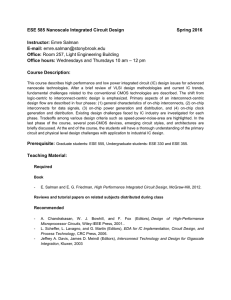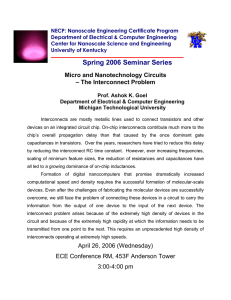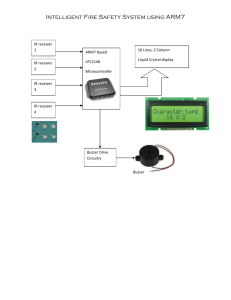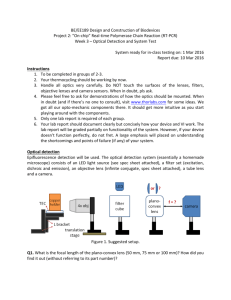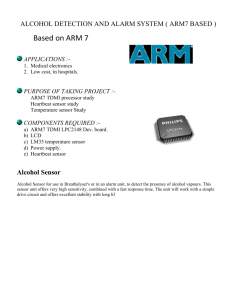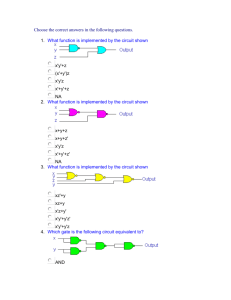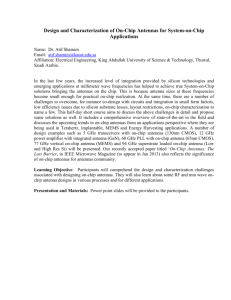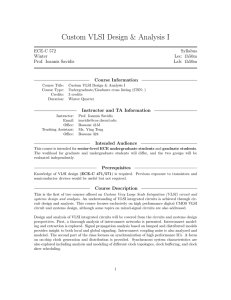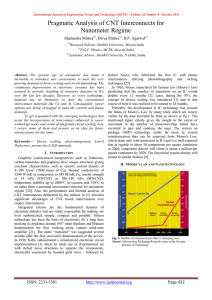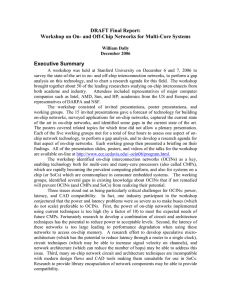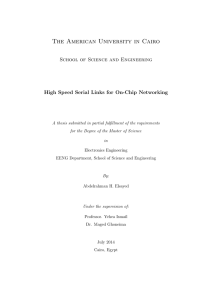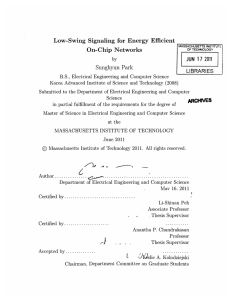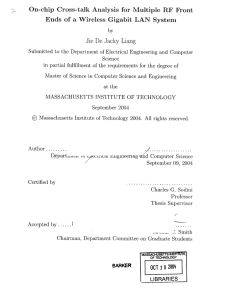ESE 585 - Syllabus
advertisement
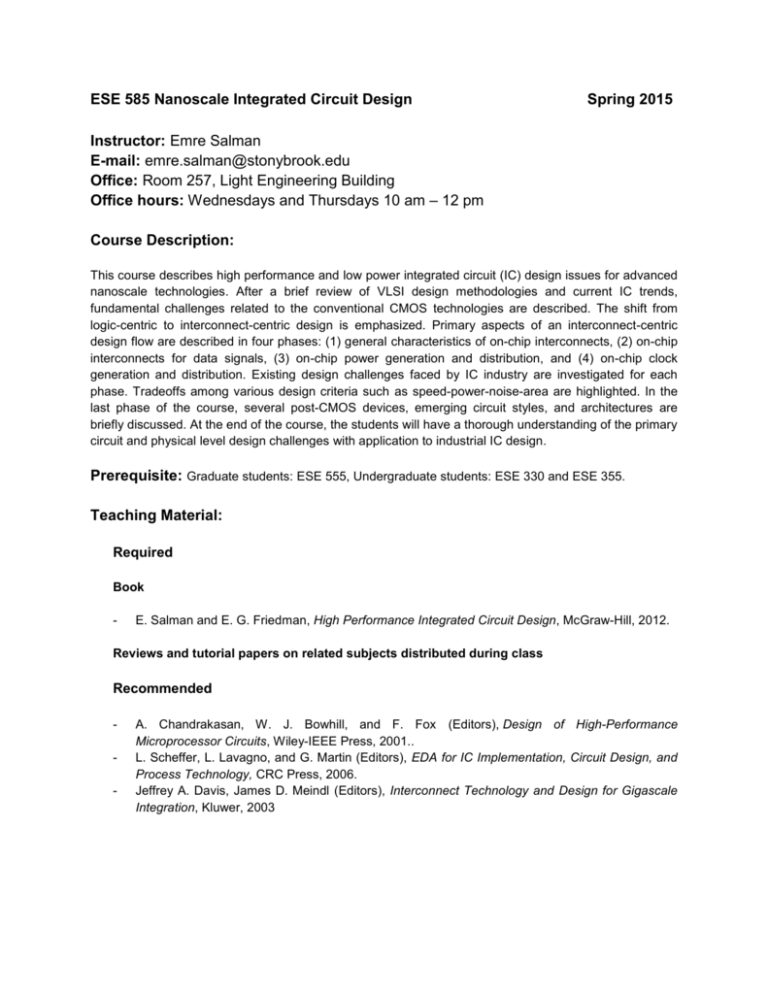
ESE 585 Nanoscale Integrated Circuit Design Spring 2015 Instructor: Emre Salman E-mail: emre.salman@stonybrook.edu Office: Room 257, Light Engineering Building Office hours: Wednesdays and Thursdays 10 am – 12 pm Course Description: This course describes high performance and low power integrated circuit (IC) design issues for advanced nanoscale technologies. After a brief review of VLSI design methodologies and current IC trends, fundamental challenges related to the conventional CMOS technologies are described. The shift from logic-centric to interconnect-centric design is emphasized. Primary aspects of an interconnect-centric design flow are described in four phases: (1) general characteristics of on-chip interconnects, (2) on-chip interconnects for data signals, (3) on-chip power generation and distribution, and (4) on-chip clock generation and distribution. Existing design challenges faced by IC industry are investigated for each phase. Tradeoffs among various design criteria such as speed-power-noise-area are highlighted. In the last phase of the course, several post-CMOS devices, emerging circuit styles, and architectures are briefly discussed. At the end of the course, the students will have a thorough understanding of the primary circuit and physical level design challenges with application to industrial IC design. Prerequisite: Graduate students: ESE 555, Undergraduate students: ESE 330 and ESE 355. Teaching Material: Required Book - E. Salman and E. G. Friedman, High Performance Integrated Circuit Design, McGraw-Hill, 2012. Reviews and tutorial papers on related subjects distributed during class Recommended - A. Chandrakasan, W. J. Bowhill, and F. Fox (Editors), Design of High-Performance Microprocessor Circuits, Wiley-IEEE Press, 2001.. L. Scheffer, L. Lavagno, and G. Martin (Editors), EDA for IC Implementation, Circuit Design, and Process Technology, CRC Press, 2006. Jeffrey A. Davis, James D. Meindl (Editors), Interconnect Technology and Design for Gigascale Integration, Kluwer, 2003 Course Content: Course consists of the following four primary parts - - - - Introduction o Integrated circuit design process and history o Review of MOS transistor theory o Device and interconnect scaling o Interconnect-centric design On-chip Interconnects o Modeling and extraction o Signal propagation and delay analysis o Interconnect coupling noise: Crosstalk o Substrate coupling noise o Global signaling methodologies On-chip Power Networks o Power generation o Power and ground distribution o Power consumption o Low power design techniques On-chip Clock Networks o Synchronization o On-chip clock generation o Clock distribution o Timing optimization of synchronous systems Grading - Midterm: 30 % Lab assignments: 30% Final project and a four page report written in IEEE format: 40% Student Learning Objectives: - An ability to identify, formulate, and solve engineering problems An ability to understand current research issues An ability to communicate effectively If you have a physical, psychological, medical or learning disability that may impact on your ability to carry out assigned course work, you are urged to contact the staff in the Disabled Student Services office (DSS), Room 133, Humanities, 632-6748/TDD. DSS will review your concerns and determine, with you, what accommodations are necessary and appropriate.
